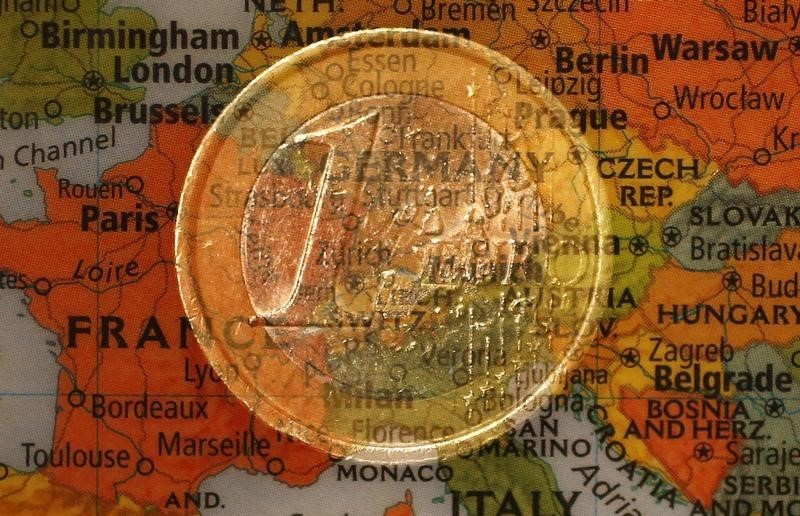By John O'Donnell and Jonathan Gould
FRANKFURT (Reuters) - Lending throughout the euro zone failed to grow in April after a promising uptick a month earlier, a slip that tempers hopes for a rapid turnaround in borrowing to boost the economy.
European Central Bank data showed on Friday that overall lending growth to households and firms was unchanged in the month, despite the recent launch of a massive money-printing programme to bolster the 19 countries in the euro bloc.
Although the fact that lending is holding steady is positive in itself, following years of decline, the stagnation in April will disappoint those who had predicted a modest improvement, including in a Reuters poll.
Sparse lending to companies has dogged the struggling euro zone economy although the picture had been improving and policy setters including ECB President Mario Draghi believe that the bloc is recovering.
But the fact that banks are lumbered with billions of euros of loans that may go unpaid and consumers and companies are wary of borrowing is blunting the full impact of the 1 trillion euro-plus ECB scheme to buy chiefly government bonds.
Although overall lending is flat, detailed data shows that lending to companies or consumers is actually in decline, with only borrowing by home buyers brightening an otherwise bleak picture.
Lending to businesses fell by 0.4 percent annually, albeit an improvement on the previous month, where the fall was even steeper. Consumer credit to buy cars or holidays is also in decline, down by 0.1 percent.
Lending for home buyers, on the other hand, is on the rise and it picked up by 0.1 percent for the second month running in April.
The trend underscores the limitations - at least so far - on so-called quantitative easing or money printing to buy government bonds.
"Lots of the ECB's money is going into mortgages," said Carsten Brzeski, an economist with ING. "Construction is booming in Germany. The rest is being hoarded or spent on bonds and shares."
"Much more powerful channels for the ECB to restore growth would be consumption or business investment."

The ECB said that the M3 measure of money circulating throughout the 19 countries in the euro zone grew, however, by 5.3 percent in April.